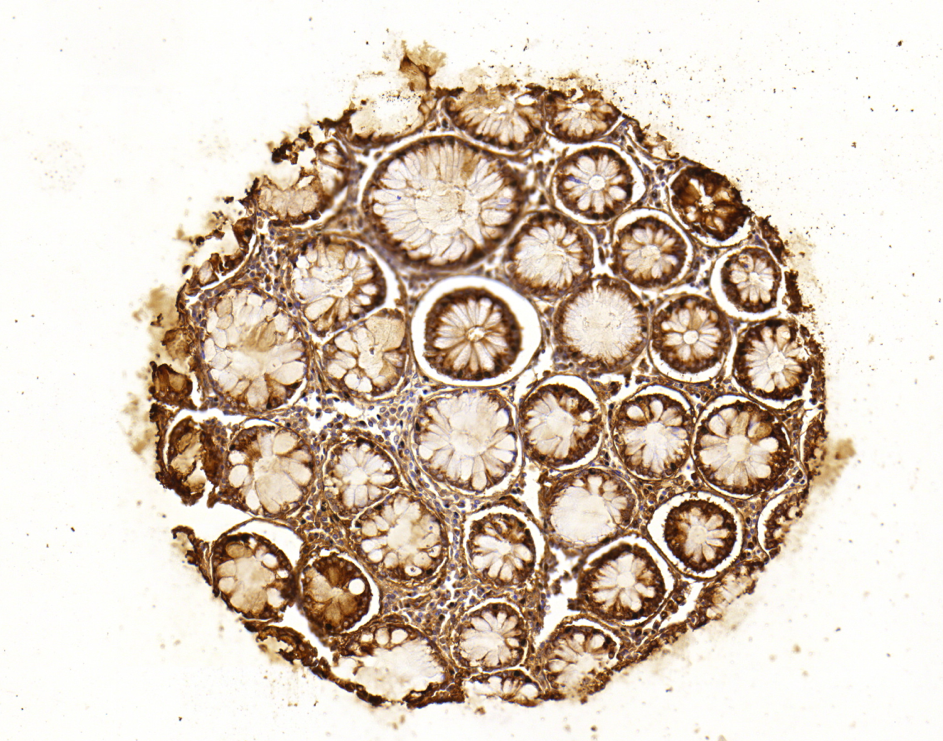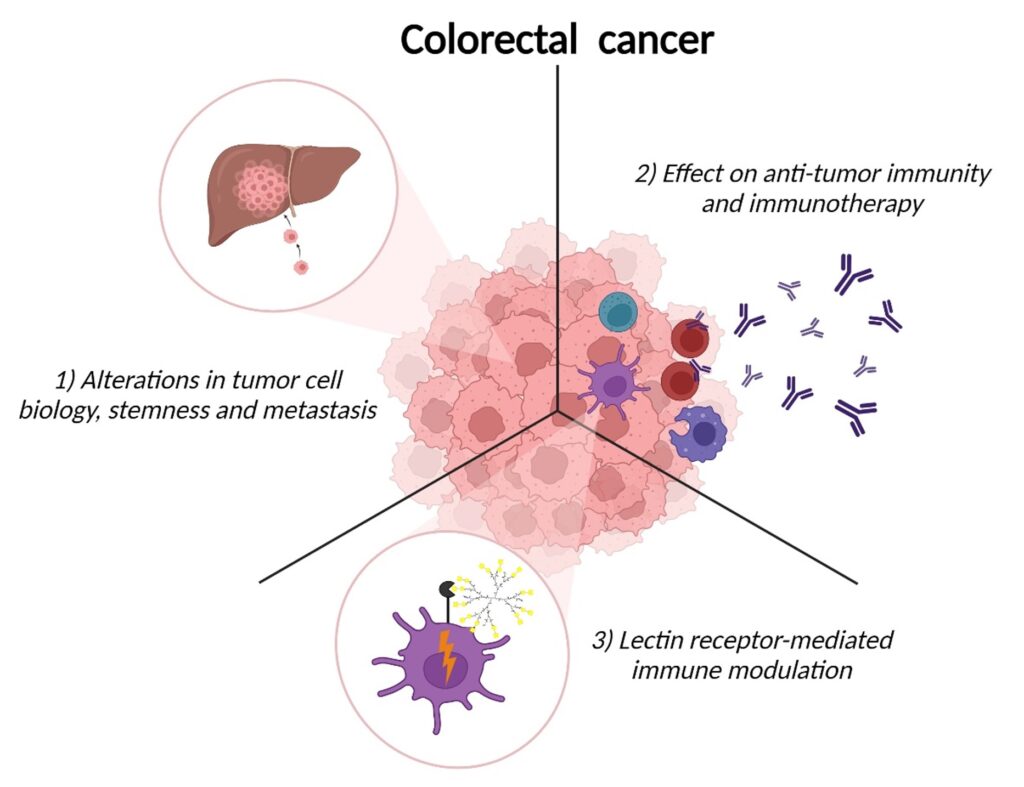
About
During her cum laude PhD and postdoctoral years Sandra J. van Vliet studied the impact of glycosylation and glycan-binding receptors on dendritic cell biology and specialized in the field of glyco-immunology. She obtained a prestigious NWO-VENI grant in 2010 that allowed her to dissect the signaling properties of glycan-binding receptors. With grants from the Dutch Cancer Society, Cancer Center Amsterdam and European Marie Curie ITN network she has established her own independent research group that aims to unravel how tumor glycans affect tumor progression, metastasis and anti-tumor immunity. In 2017, Sandra van Vliet was awarded the female career award ASPASIA from the Netherlands Organisation for Scientific Research (NWO). With the ASPASIA she established the Amsterdam UMC Women in Science Fund, which aims to accelerate the careers of young female scientists by providing grants for international work visits and networking.
Research Lines
- Impact of tumor cell glycosylation on tumor cell biology and anti-tumor immunity
Cellular glycosylation is a highly dynamic process that alters upon activation, inflammation, and oncogenic transformation. Although it has been known for decades that cell surface glycans are highly diverse, it is still unclear how glycan heterogeneity is established and how this impacts tumor cell biology and tumor-immune cell recognition. We employ CRISPR/Cas9 genome engineering (both gene knockout as well as gene induction strategies) to generate isogenic tumor glycovariant cell lines and organoids. We assess the effect of tumor cell glycosylation on 3D tumor growth as well as tumor cell differentiation and immune cell interactions, mainly in the context of colorectal cancer. We address how the tumor glyco-code affects anti-tumor immunity as well as the response to immunotherapy. - Molecular recognition and signaling of lectin receptors within the immune system
Within the immune system, glycan blue prints are decoded by specific glycan-receptors, such as the C-type lectin (CLRs) or the Siglec receptors. These glycan-binding receptors are crucial in regulating the balance between immunity and tolerance and several CLRs and Siglecs seem to endow a tolerogenic phenotype on antigen presenting cells (APCs) to dampen potential immune responses directed against the tumor. We study on a molecular level how different glycan ligands affect lectin signaling and subsequent reprogramming of the APCs. In addition, we design targeting moieties to harness lectin function in order to to adjust and fine-tune immune responses.
Key publications
- van der Meijs NL, Travecedo MA, Marcelo F, van Vliet SJ. The pleiotropic CLEC10A: implications for harnessing this receptor in the tumor microenvironment. Expert Opin Ther Targets. 2024 Jul 3:1-12. doi: 10.1080/14728222.2024.2374743.
- van der Haar Àvila I, Zhang T, Lorrain V, de Bruin F, Spreij T, Nakayama H, Iwabuchi K, García-Vallejo JJ, Wuhrer M, van Kooyk Y, van Vliet SJ. Limited impact of cancer-derived gangliosides on anti-tumor immunity in colorectal cancer. Glycobiology. 2024 May 26;34(7):cwae036. doi: 10.1093/glycob/cwae036.
- Gabba A, Attariya R, Behren S, Pett C, van der Horst JC, Yurugi H, Yu J, Urschbach M, Sabin J, Birrane G, Schmitt E, van Vliet SJ*, Besenius P*, Westerlind U*, Murphy PV*. MUC1 Glycopeptide Vaccine Modified with a GalNAc Glycocluster Targets the Macrophage Galactose C-type Lectin on Dendritic Cells to Elicit an Improved Humoral Response. J Am Chem Soc. 2023 Jun 21;145(24):13027-13037. doi: 10.1021/jacs.2c12843. *shared last author
- Cornelissen LAM, Blanas A, van der Horst JC, Kruijssen L, Zaal A, O’Toole T, Wiercx L, van Kooyk Y, van Vliet SJ. Disruption of sialic acid metabolism drives tumor growth by augmenting CD8(+) T cell apoptosis. Int J Cancer. 144(9):2290-2302 (2019)
- Marcelo F, Supekar N, Corzana F, van der Horst JC, Vuist IM, Live D, Boons GPH, Smith DF, van Vliet SJ. Identification of a secondary binding site in human macrophage galactose-type lectin by microarray studies: Implications for the molecular recognition of its ligands. J Biol Chem. 294(4):1300-1311 (2019).
- Blanas A, Cornelissen LAM, Kotsias M, van der Horst JC, van de Vrugt HJ, Kalay H, Spencer DIR, Kozak RP, van Vliet SJ. Transcriptional activation of fucosyltransferase (FUT) genes using the CRISPR-dCas9-VPR technology reveals potent N-glycome alterations in colorectal cancer cells. Glycobiology. 29(2):137-150 (2019)
- Blanas A, Sahasrabudhe NM, Rodríguez E, van Kooyk Y and van Vliet SJ. Fucosylated antigens in cancer: an alliance towards tumor progression, metastasis and resistance to chemotherapy. Front Oncol. 8:39 (2018)
This article was selected for a special edition for World Cancer day 2019, highlighting a selection of top articles published in Frontiers in Oncology over the prior 12 months. - Lenos K, Goos JACM, Vuist IM, den Uil SH, Delis-van Diemen PM, Belt EJTh, Stockmann HBAC, Bril H, de Wit M, Carvalho B, Giblett S, Pritchard CA, Meijer GA, van Kooyk Y, Fijneman RJA, van Vliet SJ. MGL ligand expression is correlated to BRAF mutation and associated with poor survival of stage III colon cancer patients Oncotarget 6(28):26278-90 (2015) ‒ IF 5.2, corresponding author


Group members

Remi Hatinguais, MSc
Postdoctoral researcher

Irene van der Haar Àvila, MSc
PhD student
The focus of my PhD project is to evaluate the impact of sialylation on the anti-tumor response in colorectal cancer (CRC) by generating CRISPR/Cas9-based CRC cell lines with different levels of sialic acids. We aim to identify specific sialo-signatures that help in predicting response and success of cancer immunotherapy. For this, we make use of in vivo tumor models, multicolor (spectral) flow cytometry, microscopy imaging, IHC, co-culture assays, and RNA sequencing data.

Nadia van der Meijs, MSc
PhD student
I’m investigating the signaling of the C-type lectin receptor MGL in dendritic cells in more detail by looking at, for example, the cytokine production, co-stimulatory and inhibitory receptor expression and gene expression patterns. With different MGL ligands, that induce a different conformation in MGL after binding, we hope to steer the immune response started by the dendritic cells in different directions.

Victor Lorrain, MSc
Research technician
Investigating the impact of tumor glycosylation on anti-tumor immunity










